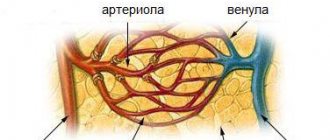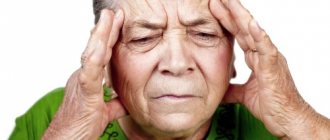Additional diagnostics
Smells that others cannot smell are a reason for a detailed examination. It is possible to find out the cause of what is happening only on the basis of a comprehensive diagnosis using a laboratory and instrumental complex. Based on the doctor’s assumption based on the clinical picture, the patient is recommended to undergo additional procedures:
- General blood and urine analysis.
- Blood biochemistry (inflammatory markers, liver tests, electrolytes, glucose, hormonal spectrum).
- Nasal and throat swab (cytology, culture, PCR).
- Rhinoscopy.
- X-ray of the paranasal sinuses.
- Computed tomography of the head.
- Echoencephalography.
- Fibrogastroscopy.
- Ultrasound of the abdominal organs.
To obtain maximum diagnostic value, the examination program is developed on an individual basis. If necessary, the patient consults not only an ENT doctor, but also other specialists: gastroenterologist, neurologist, endocrinologist, psychotherapist. And the results obtained make it possible to establish the final cause of the violations and eliminate the unpleasant odor that seemed to patients.
People who suffer from olfactory hallucinations complain that the food they eat smells like ammonia or sulfur and smells like decay. Or, they may be haunted by the smell of a tea rose, which they felt once upon a time, while visiting a flower exhibition. Undoubtedly, a floral smell can be classified as pleasant, but if it accompanies a person throughout his life, then a completely opposite effect occurs.
In addition, with olfactory hallucinations, pleasant smells are much less common; patients are mostly bothered by the rather pungent smells of smoke, petroleum products, tar, feces, bird droppings, rotten eggs; patients often call the smell of a corpse, and much more. Patients treat olfactory hallucinations critically and realize that these are phenomena of a painful nature.
It has also been established that patients rarely focus their attention on them, and doctors sometimes reveal this disorder only during a survey related to a specific disease. As clinical practice shows, statistical data are incomplete due to the fact that patients in serious condition do not provide accurate information, and it is difficult to collect the necessary information.
Olfactory hallucinations, as well as other forms of this disorder, are caused by a number of reasons, both simple and quite serious, requiring
long-term treatment. The list of the most common causes includes mental disorders, traumatic brain injuries, and various tumors. But sometimes olfactory hallucinations are caused by damage to the nasal mucosa. In this case, solving the problem is much easier. There are people who put up with olfactory hallucinations all their lives, not even suspecting that this condition can be extremely dangerous, as it is an alarming symptom that the body requires immediate help.
It is known that you cannot get rid of phantosmia by smelling something else, for example, spices, perfumes, etc. The patient’s futile attempts to spray air fresheners in the air of the room also lead to nothing. For example, one patient told the doctor that for several years she had been smelling freshly dug earth after landscape designers tidied up the area around her house and prepared the soil for sowing lawn grasses. Another man was injured in a car accident, and after that the smell of cigarette smoke and burnt rubber began to haunt him.
Olfactory hallucinations occur when the secondary center of the olfactory analyzer is irritated, and often accompany epilepsy, manifesting itself in the form of simple sensory seizures that have secondary generalization. In addition, short-term olfactory hallucinations are combined with other types of disorders; they are accompanied by vegetative-vascular and other disorders, and are complemented by taste hallucinations.
The cause of olfactory disorders is pathological processes, the localization of which is the area of the hook of the brain. Disturbed communication between the hippocampus and the cerebral cortex also has an impact. In general, olfactory hallucinations are the most commonly cited causes. These patients are more likely than others to experience unpleasant cadaveric odors.
Treatment of olfactory hallucinations
The treatment process for any hallucinations is quite lengthy, and doctors are suitable
to this issue, taking into account the main diagnosis and concomitant diseases. The patient’s age, lifestyle, habits, and many other factors also matter. It has been established that olfactory hallucinations are often harbingers, so a person who goes to the doctor with complaints about such phenomena is prescribed a full medical examination, which is not at all a whim of the attending physician, but is an extreme necessity. Only after receiving an accurate diagnosis can a specialist prescribe effective treatment.
When establishing the correct etiological diagnosis, great importance is attached to the history of olfactory disorders. Sometimes patients complain not only of olfactory hallucinations, but also of taste ones. The doctor begins by carefully examining the nasal passages, upper respiratory tract, head, and assessing the function of the cranial nerves.
Based on the results of the study, the doctor clarifies the diagnosis and prescribes adequate therapy. It is worth noting that olfactory hallucinations can be a side effect that occurs when using certain medications, as well as when poisoning with substances of chemical or narcotic origin.
Experts call cacosmia a very rare olfactory illusion, which consists in the fact that perception plays “interesting” games with a person - it changes smells, and, as a rule, in a negative direction. That is, familiar and pleasant smells illusorily take on a sharply disgusting character (in a broader sense, the word cacosmia means any unpleasant smell).
In medicine and psychology, the term “cacosmia” (also dysosmia, parosmia) refers to a type of affective illusion - distortion, imaginary odors, a peculiar disturbance of the sense of smell under the influence of stress, excitement, fear, sudden change of environment, etc.
However, almost all experts note two important factors: firstly, this phenomenon, unfortunately, has been practically not studied (neither its nature nor correct diagnosis) to this day, and, secondly, it is little distinguishable from olfactory hallucinations (sometimes in general, merges with them).
In addition, the occurrence of illusions of smell often occurs for natural medical reasons unrelated to the human psyche, being a consequence of common diseases - caries, chronic tonsillitis, chronic or acute sinusitis, various types of pathological conditions of the gastrointestinal tract.
Moreover, from the point of view of psychiatrists and psychologists, the causes of olfactory illusions or hallucinations (unpleasant smell of mold, vinegar, rot, etc.) lie in the field of pathology, and speak of erroneous stimulation of receptors as a result of a pathological process in the cortical olfactory projection area.
Olfactory illusions (or hallucinations) can also arise as a result of a partial epileptic seizure, since the manifestation of olfactory agnosia (in this case, illusions), the occurrence of a process of impaired recognition of a previously well-known smell, is directly related to focal, bilateral processes lying in the hippocampal area .
One cannot discount the fact that disturbances of the sense of smell (illusions of smell) often occur in the course of various diseases that are not related to lesions of the nervous system, this applies to hypothyroidism, diabetes mellitus, scleroderma, Paget's disease, etc.
General practitioners are well aware of cases of parosmia, the manifestation of unusual imaginary sensations, olfactory illusions during exposure to standard olfactory stimuli in inflammatory lesions of the nasopharynx, during the restoration of a reduced (due to disease) sense of smell.
Doctors call the phenomenon of olfactory illusions the fact that after colds (especially viral) diseases, the ability to smell sharply decreases, but before the disease (during the incubation period), the phenomenon of hyperosmia (sharp increased olfactory sensitivity) always occurs.
Doctors call the cause of the heightened sense of smell at the beginning of the disease a kind of compensatory affect of consciousness, provoking a search for the means necessary for recovery.
If a person’s sense of smell is impaired, then only one sensation arises - taste, and habitual perception registers only 4 main types of taste - sweet and salty, bitter and sour, and all the specific subtleties characteristic of the taste of various food products disappear , because they are associated with smell.
ENT pathology
The first thing you should think about when complaining of an unpleasant odor is diseases of the ENT organs.
When the nasal mucosa is damaged, the sense of smell is invariably impaired, but the patient may not always feel the smell of pus or rot. Most often, a similar symptom occurs with sinusitis, chronic tonsillitis or ozena.
In the latter case, the smell is so pronounced that others notice it. But besides this, you need to pay attention to other symptoms:
- Impaired nasal breathing.
- Nasal discharge (mucopurulent or purulent).
- Heaviness in the projection of the paranasal sinuses.
- Dry mucous membranes and crusting.
- Sore throat when swallowing.
- Traffic jams on the tonsils.
If we are talking about acute sinusitis, then the purulent process in the sinuses invariably entails an increase in temperature and intoxication with headaches, but chronic sinusitis gives less pronounced symptoms.
With tonsillitis, disorders of the kidneys, heart, and joints are often detected (the result of sensitization to streptococcal antigens).
If the sense of smell is impaired due to ARVI, then in the clinical picture, in addition to a runny nose, against the background of intoxication there will be other catarrhal symptoms, for example, redness of the throat and lacrimation.
Pathology of the nose, paranasal sinuses and pharynx is the main cause of the appearance of a foreign odor, which can be perceived by others only upon close contact with the patient.
Symptoms: what you need to know
Symptoms that actively develop and increase in number in proportion to the time that a person does not eliminate the problem, as a result of the presence of odor in the nasal cavity, need to be known in order to seek medical help as soon as possible. Main manifestations:
- severe discomfort in the nose
- headache (especially pronounced in the parietal area);
- difficulty smelling and recognizing other odors;
- dizziness (including without reason);
- nausea;
- vomit;
- depressed state.
In especially advanced cases, pre-depressive states, general weakness and lethargy, apathy, and indifference to what is happening are observed. Sometimes characteristic purulent crusts can form in the nose, which also negatively affect a person upon visual contact.
Diagnostic procedures
Modern medicine presents a whole range of diagnostic measures aimed at identifying a specific disease. Here is just a small list of techniques that allow you to recognize an illness whose symptom is an unpleasant odor:
- electroencephalography – allows you to establish or exclude epilepsy;
- computed tomography – detects skull fractures and brain tumors;
- magnetic resonance imaging - detects inflammation and hematomas in the brain.
And these were just the basic procedures that your doctor may prescribe. We should not forget about the usual diagnostic methods that have been used in clinics for several decades. Although it should be noted that modern medicine is gradually pushing them into the background.
Therapeutic measures
Before starting treatment, it is necessary to make an accurate diagnosis.
This will require consultations with several specialists (ENT doctor, neurologist, psychiatrist).
This is necessary in order to establish not only the presence of pathology, but also the reason that provoked its development. A number of instrumental studies, such as EEG, CT, MRI, will also be required.
After identifying the pathology and cause, treatment begins. It is immediately necessary to understand that treating olfactory hallucinations is a process that requires a lot of effort and time. The choice of one method or another directly depends on what factor provoked the development of the disease.
| Causes | Therapy methods |
| Oncological diseases, tumors that can be removed | Surgical removal of the tumor, as well as affected areas of the brain. The operation is performed under general anesthesia, it is considered very complex, traumatic, and requires a long recovery period. |
| Schizophrenia | Antipsychotic drugs. The choice of one drug or another is made depending on the stage of development of the pathology. |
| Depressive disorders | Psychotherapeutic sessions (individual or group), taking antidepressants. |
| Epilepsy | Taking anticonvulsants |
| Alcohol or food poisoning, infectious diseases that cause intoxication of the body | Taking drugs - sorbents, intensive detoxification therapy in a hospital setting (this depends on the degree of intoxication). |
| Impaired blood circulation in brain tissue, leading to their death | Taking nootropics, vitamin preparations, and agents that normalize metabolic processes. |
Olfactory hallucinations may indicate the presence of serious diseases or pathologies affecting the brain area. In particular, pathology often occurs in the presence of tumor formations in one or another part of the organ. That is why this obvious and very dangerous symptom cannot be ignored.
It is difficult to get rid of this condition. You need to be prepared for long-term therapy. The doctor develops a course of treatment based on the cause of olfactory hallucinations, and additionally treats concomitant diseases. The patient’s age, general health, habits and other factors are taken into account.
Sometimes an impending epilepsy attack may manifest as olfactory hallucinations. To find out the exact picture of what is happening, the patient is sent for additional examination. When the diagnosis is confirmed, treatment is carried out. If the cause of this condition is a brain tumor, surgery may be indicated. If phantosmia is caused by taking medications, they are discontinued. In case of drug addiction, the patient may be placed in a drug dispensary.
Currently, very few people have been registered with olfactory hallucinations. This is due to the fact that many of these patients do not seek medical help, not attaching much importance to their condition.
But such a manifestation can be a symptom of a serious illness. These may be signs of epilepsy, schizophrenia, brain tumor, and other mental disorders. All these diseases are difficult to treat in an advanced stage.
Smell and sense of smell - what is the difference?
The sense of smell is known to be a powerful memory activation tool and influences mood and emotions. But few people know that ultra-fine perception of smells refers to extrasensory abilities, and allows you to receive information from the world of spirits!
Clairaudience is a type of extrasensory perception¹.
To develop it, you need to learn to navigate the world of aromas, catch odors, analyze them and decipher them as a kind of message. The normal sense of smell is not capable of this.
Diseases that cause hallucinations
- The American Academy of Neurology says unpleasant phantom odors may be a warning sign of stroke.
- The smell of burnt or spoiled food, according to specialists at the Headache and Treatment Center of New York, may indicate an impending migraine attack.
- According to the results of a study in which over 3,000 volunteers aged 57 to 85 years took part, scientists from the University of Chicago found that with long-term impairment of olfactory function, the risk of death in the next 5 years increases by 3.37 times.
- Experts at Harvard Medical School have determined that complete or partial loss of the sense of smell or the ability to distinguish odors may be a sign of the development of Alzheimer's disease in its early stages.
- Australian scientists believe that people with poor sense of smell are potential psychopaths. This conclusion is based on the fact that the inability to normally recognize odors is directly related to a mental disorder consisting of a lack of empathy, rudeness and antisocial behavior.
Having realized that there is a problem, a person most often turns to an otolaryngologist to solve it. And this is the right decision, because such a specialist will help to exclude the presence of other olfactory disorders caused by chronic tonsillitis, sinusitis, sinusitis and a number of other ENT diseases. It would also be a good idea to visit a dentist and gastroenterologist, since dental problems and disorders of the digestive system are no less common causes of smell disorders.
If there is no longer any doubt that the smells you perceive are phantom, you should consult a neurologist or psychiatrist. The first specialist will help identify additional signs of damage to the central nervous system, the second will help determine the presence of mental disorders. From instrumental studies, patients may be prescribed electroencephalography, computed tomography and magnetic resonance imaging of the head. Such diagnostic procedures will help identify any abnormalities in the functioning of the brain.
There can be no specific treatment for olfactory hallucinations, since you can get rid of phantosmia only by eliminating the cause of their appearance.
Take the test
Photos used from Shutterstock
A disturbance of perception, when a person hears, sees or feels something that is not in reality, is called a hallucination. There are several types of this disorder according to different types of sensitivity. Olfactory hallucinations deserve special attention. A person does not always go to the doctor with such an atypical complaint as the feeling of foreign odors. But this symptom can hide quite serious diseases, so delaying a visit to the doctor is dangerous.
Hallucinations occur in schizophrenia, epilepsy, brain tumors, alcoholic psychosis, infectious diseases, cerebral syphilis, herpetic encephalitis, cerebral atherosclerosis, drug poisoning - cocaine, LSD, mescaline. Hallucinations occur during hypothermia.
Hallucinatory-paranoid syndrome - a patient seeing hallucinations (frightening - murders, violence, threats) takes them for reality and tells their content - nonsense. Develops in alcoholic psychoses, schizophrenia, syphilis of the brain.
Hallucinosis is a syndrome characterized by the presence of pronounced and persistent (usually auditory) hallucinations - more often in alcoholism and syphilis.
Alcoholic delirium is an alcoholic psychosis characterized by true visual hallucinations, delusional disorders, behavioral changes, and motor restlessness. Develops against the background of abstinence or hangover. First, illusions appear, and then true hallucinations. More often the patient sees small animals, insects, less often snakes, devils, and people.
Alcoholic hallucinosis - alcoholic psychosis - in the evening or at night during insomnia, anxiety, fear and auditory deceptions occur acutely. The feeling of threat already comes from the delusional perception of the “altered reality of the world.” Voices swear and argue more often, an evil voice quarrels with a good one. The feeling of fear grows and the patient tries to escape.
Prison hallucinosis – delusional perception of reality with auditory hallucinations – whispering, stalking.
Chronic tactile hallucinosis - the patient constantly thinks that goosebumps and worms are crawling on the skin and under the skin - with organic brain lesions, senile psychoses. In some cases of poisoning with tetraethyl lead (contained in leaded gasoline), an acute psychotic state occurs with a disorder of consciousness and hallucinatory experiences - more often imperative auditory hallucinations and tactile hallucinations - the taste of hair in the mouth.
With syphilis of the brain, there are auditory hallucinations in the form of individual sounds and words, exclamations, and visual hallucinations of unpleasant content.
The hallucinations of drug addicts combine auditory and visual images, unreal, evil, scary creatures, delusions of persecution, and jealousy.
Visual hallucination of a polydrug addict.
With decompensation of cardiovascular diseases, mood disturbances, feelings of anxiety, fears, insomnia and hallucinatory manifestations occur. With the improvement of physical condition and normalization of blood circulation, all mental disorders disappear.
With rheumatic diseases of the heart and joints, irritability, intolerance, tearfulness, sleep disturbances, deceptions of perception, especially in the evenings, and, less often, influxes of hallucinations develop.
Auditory and visual hallucinations are possible with malignant tumors. The toxicity of the disease, exhaustion, brain damage, and the use of narcotic substances as analgesics play a role in development.
In infectious diseases - typhus and typhoid fever, malaria, pneumonia - there may be influxes of visual hallucinations, illusory perceptions of surrounding objects and fragmentary delusional statements about exciting, frightening scenes, attacks by monsters, death. When the temperature drops, everything disappears.
Amentia is a severe form of impairment of consciousness, characterized by a violation of the integrity of the perception of an object, a violation of the synthesis of perceptions, a violation of thinking, speech, orientation in oneself and space, and hallucinations. Occurs during endogenous psychoses (traumatic, infectious, toxic). May be fatal. During the period of amentia, survivors develop amnesia (memory loss).
Hallucinations are a symptom of mental illness - schizophrenia, psychosis.
Hyperosmia is a strong sensitivity to odors present in the environment. A patient who has a heightened sense of smell is able to perceive and recognize subtle aromas.
This condition can lead to headaches, severe migraines, dizziness, pain in the paranasal sinuses, depression and emotional instability, and mental disorders.
Hyperosmia can become a source of problems when a person, trying to find the cause of a painful condition, constantly asks the question: “I smell strongly, why?”
Despite the fact that it seems to an outsider that the problem is far-fetched, people suffering from a heightened sense of smell experience real physical pain and strive to get rid of the disease by any means.
Sometimes olfactory hallucinations are observed when the patient o Any disturbance of the olfactory function requires immediate attention to a specialist.
Smell of vinegar
A person's sweat can sometimes smell like vinegar. It is important to understand that the appearance of such a symptom is accompanied by increased sweating. Among the reasons why this problem may develop:
- Endocrine disorders
- Lack of vitamins D and B
- Infectious and inflammatory diseases of the lungs
- Mastopathy
If we are talking about disruptions in the endocrine system, the body may experience a lack of iodine. This immediately leads to the appearance of an unpleasant odor. It is quite possible to recognize tuberculosis by the vinegary odor from the body, because in this case, symptoms such as severe cough, fatigue, weakness and fever will appear. Women are not recommended to ignore such a smell: it can indicate serious problems with the breasts.
Diseases of ENT organs
The most common cause of symptoms of the problem is considered to be pathologies of the ENT organs.
When the mucous membranes of the nose are affected, a disturbance in the sense of smell is observed.
However, the appearance of a putrid odor does not always occur. Usually this symptom accompanies sinusitis, ozena and chronic tonsillitis.
In addition, many additional symptoms occur:
- problems with nasal breathing;
- the appearance of plugs on the tonsils;
- feeling of heaviness in the sinuses;
- the appearance of purulent secretion from the nose;
- pain when swallowing;
- a feeling of dryness of the mucous membranes and the appearance of crusts.
When acute sinusitis appears, the purulent process necessarily provokes an increase in temperature, the appearance of symptoms of poisoning and headaches.
The chronic process is accompanied by less noticeable manifestations.
With angina, damage to the kidneys, joints, and heart often occurs. These manifestations are a consequence of sensitization to streptococcal antigens.
If the problem arises as a result of viral infections, in addition to rhinitis, catarrhal manifestations are sure to occur - in particular, lacrimation and sore throat.
Phantosmia or when the nose fails us?
Olfactory hallucinations are a severe symptom of some diseases. People with impaired sense of smell may complain that food smells of ammonia, sulfur, or decomposition. Some people have one smell that they once smelled for a long time.
This condition has a scientific definition - phantosmia. Olfactory hallucinations are just as unpleasant as auditory or visual hallucinations, and also belong to obsessive states.
At the same time, pleasant smells haunt patients less often than unpleasant ones. Patients often complain of the smell of rotten eggs, feces, petroleum products, smoke, and tar. The patient’s behavior at this time is ambiguous; some are tolerant of their condition, while others try to ventilate the room and turn on the fan.
It is difficult to diagnose this condition, since patients do not come with such complaints. A deviation is discovered during a general inspection or for another reason.
Olfactory hallucinations are the most severe symptom of some diseases. People with impaired sense of smell may complain that food smells of ammonia, sulfur, or decomposition. Some people have one smell that they once smelled for a long time.
This condition has a scientific definition - phantosmia. Olfactory hallucinations are just as unpleasant as auditory or visual hallucinations, and also belong to obsessive states.
How can you recognize the past and foresee the future using clairsmell?
Surprisingly, acute extrasensory sense allows you to learn about various events. Clarity of smell often helps solve crimes and understand the causes of accidents. So, while studying evidence, a person may suddenly smell burning, swamp, sand or water and find the crime scene.
You can also smell death coming from a certain person...
Thanks to clairsmell, you can analyze the current situation and predict where it will lead. Also, an experienced psychic can identify an internal disease by smell, even if there are no external symptoms.
Clarity of smell allows you to detect negative energies and put energy protection in time...










